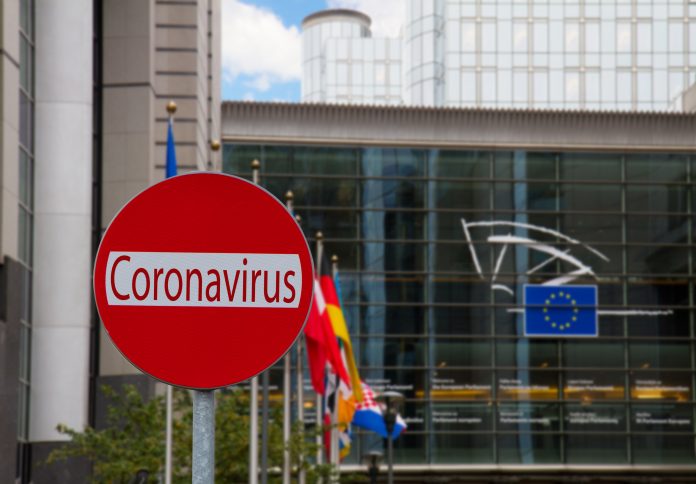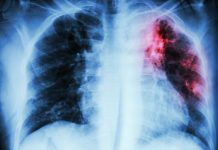The European Commission is launching an additional set of actions to help limit the spread of the coronavirus and save lives
The measures aim to better understand the virus’ spread and the effectiveness of the response, ramp up well-targeted testing, bolster contact tracing, improve preparations for vaccination campaigns, and maintain access to essential supplies such as vaccination equipment while keeping all goods moving in the single market and facilitating safe travel.
President of the European Commission, Ursula von der Leyen, said: “The COVID-19 situation is very serious. We must step up our EU response. Today we are launching additional measures in our fight against the virus; from increasing access to fast testing and preparing vaccination campaigns to facilitate safe travel when necessary. I call on Member States to work closely together. Courageous steps taken now will help save lives and protect livelihoods. No Member State will emerge safely from this pandemic until everyone does.”
Stella Kyriakides, Commissioner for Health and Food Safety, said: “The rise in COVID-19 infection rates across Europe is very alarming. Decisive immediate action is needed for Europe to protect lives and livelihoods, to alleviate the pressure on healthcare systems, and to limit the spread of the virus. Next month, we will present the first step towards a European Health Union. In the meantime, Member States must improve cooperation and data sharing. Our EU surveillance system is only as strong as its weakest link. It is only by showing true European solidarity and working together that we can overcome this crisis. Together we are stronger.”
The next steps include:
-
Improving the flow of information to allow informed decision-making
The Commission requires Member States to provide accurate, comprehensive, comparable and timely information on epidemiological data to the European Centre for Disease Prevention and Control (ECDC). Testing, contact tracing and public health surveillance is also essential to track how the coronavirus spreads at regional and national level.
-
Establishing more effective and rapid testing
The Commission is mobilising €100 million under the Emergency Support Instrument to allow direct purchase of antigen tests and is calling on Member States to submit national strategies on testing by mid-November.
It is also adopting a Recommendation on COVID-19 testing strategies which sets out key elements such as:
- Their scope,
- Priority groups,
- Key points linked to testing capacities and resources,
- Indications as to when rapid antigen testing may be appropriate.
A joint procurement will also ensure a second stream of access. Where Member States are applying prior testing requirements to incoming travellers and where no testing capacities are available for asymptomatic travellers in the country of origin, travellers should be offered the possibility to undergo a test after arrival. If negative COVID-19 tests are to be required or recommended for any activity, mutual recognition of tests is essential, in particular in the context of travel.
-
Making full use of contact tracing and warning apps across borders
So far, Member States have developed 19 national contact tracing and warning apps and the Commission recently launched a solution for linking national apps across the EU through a ‘European Federation Gateway Service’. Three national apps in Germany, Ireland, and Italy were first linked when the system came online but more will follow in the coming weeks.
In total, 17 national apps are currently based on decentralised systems and can become interoperable through the service. All Member States should set up effective and compatible apps and reinforce their communication efforts to promote their uptake.
-
Effective vaccination
Under the EU Strategy on COVID-19 vaccines, the Commission is negotiating agreements with vaccine producers to make vaccines available as soon as they are proven safe and effective.
It has so far set out the key steps that Member States need to take to be fully prepared.
-
Effective communication to citizens
All Member States should relaunch communication campaigns to counter false, misleading and dangerous information that continues to circulate (particularly on vaccination) and to address the risk of “pandemic fatigue”.
-
Securing essential supplies
In order to give Member States better and cheaper access to the essential medicines and medical equipment needed to prevent, detect and treat COVID-19, the Commission is extending the temporary suspension of customs duties and VAT on the import of medical equipment from non-EU countries.
It is Commission is also proposing that hospitals and medical practitioners should not have to pay VAT on vaccines and testing kits used in the fight against the coronavirus.
-
Facilitating safe travel
- The Commission calls on Member States to fully implement the Recommendation adopted by the Council for a common and coordinated approach to restrictions to free movement.
- The European Union Aviation Safety Agency and the ECDC are working on a testing protocol for travellers, to be used by public health authorities, airlines and airports to help the safe arrival of passengers.
- The Commission will also work with Member States and agencies on a common approach to quarantine practices, with inputs from ECDC to be presented in November.
- A pilot of Passenger Locator Forms next month will allow Member States to prepare for the use of a common EU digital Passenger Locator Form to enable contact tracing while fully respecting data protection.
- The Commission calls on Member States to provide accurate and up-to-date information to turn Re-open EU into the one-stop-shop for information about health measures and travel possibilities across the EU. A mobile Re-open EU app is being developed and will launch in the coming weeks.
When it comes to restrictions on non-essential travel from non-EU countries into the EU, the Commission is presenting guidance on categories of persons considered to be essential and therefore exempted from restrictions.
-
Green Lanes extension
The Commission proposes to extend the Green Lane approach to ensure that multi-modal transport works effectively and provides additional guidance on issues such as electronic documentation, and availability of rest and refuelling points. Member States should ensure the seamless free movement of goods across the Single Market.











